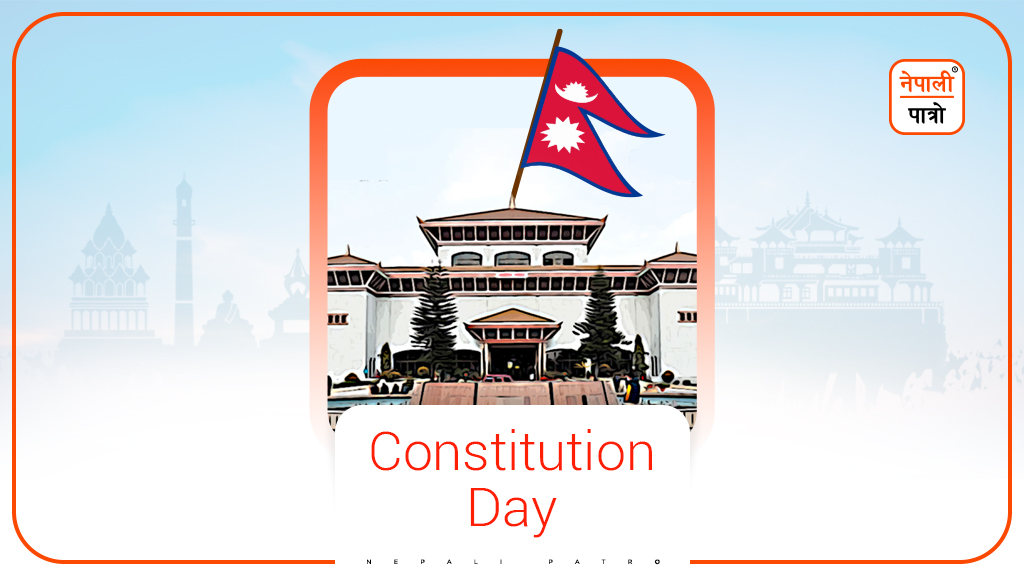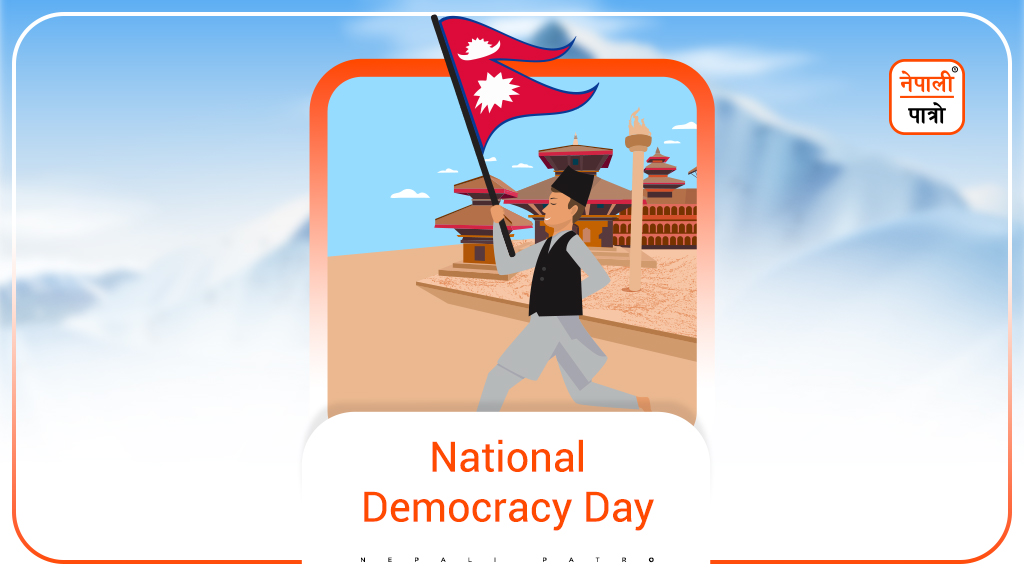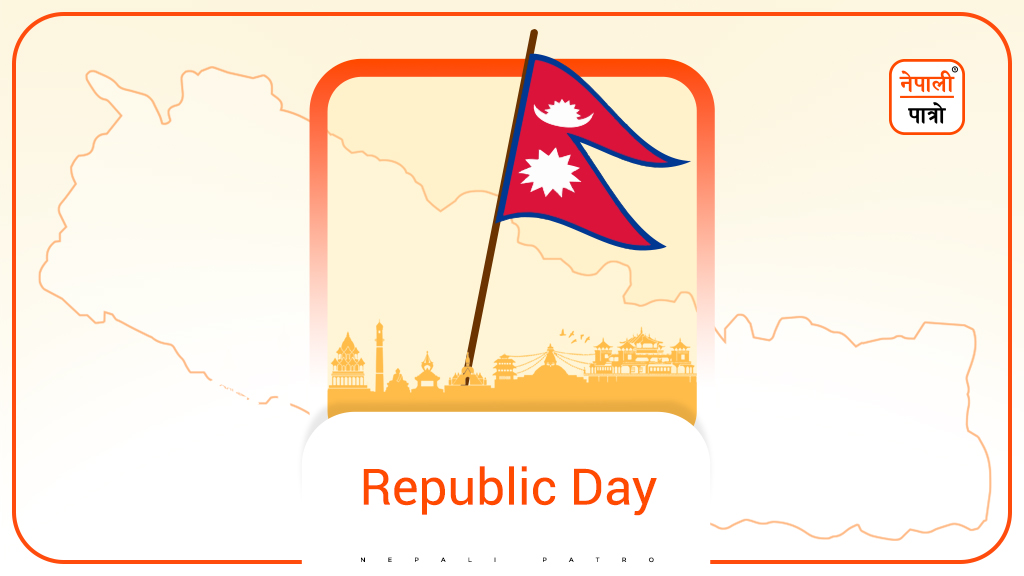
Constitution Day
In the history of Nepal, the Nepalese people had to struggle and sacrifice for ages to establish a system of governance by their own elected representatives. As a result, the first meeting of the People’s Constituent Assembly in Nepal led to the establishment of the Federal Democratic Republic. Nepal was declared the Federal Democratic Republic on B.S. 2065, Jestha 15. For the second time, the elected Constituent Assembly on 2072 B.S. Asoj 3, issued the “Constitution of Nepal 2072” to institutionalize the democratic system of working for the people’s desire for the prosperity of all people through rapid development from elected representatives. Constitution Day/ Sambidhan Diwas is celebrated in Nepal on Asoj 3rd every year to commemorate this historic event.
The Constitution of Nepal 2072, founded on the bedrock of democracy, has established the rule of law based on democratic values, ending forever the rule of kings and certain dynasties who have been exercising state power in their own interest for ages. In Nepal’s history, the discrimination, autocracy, and inequality created by the “King and lay-men” prevailing in society and the poison of oppression have been abolished which has destroyed the poison trees by giving everyone the same equal right. It has also addressed the people’s desire to build a diverse rich nation with the participation of all people through democratic practice.
Among the constitutions written in Nepal, this one is the seventh one. But, this is the first constitution issued by the Nepali people’s representatives. This constitution has introduced Nepal to a participatory democratic country in the world. The fundamental features of the current constitution are Republic, federalism, secularism, proportional inclusiveness, and social justice. The Constitution asserts the freedom, sovereignty, and autonomy of the people while maintaining Nepal’s independence, sovereignty, geographical integrity, national unity, independence and dignity.
The constitution has 35 parts, 308 sections, and nine schedules. In the constitution, it has been resolved to end all kinds of discrimination by promoting unity, social, cultural solidarity, tolerance, and harmony among the people. Through the constitution, Nepal as a country has been declared an independent, integral, sovereign, inclusive, democratic, socialist-oriented, federal secular, democratic republic. All the native languages and mother tongues spoken by different communities in Nepal are recognized by the constitution as the national language.
The constitution provides citizenship to all Nepali citizens with identity. Civil, political, economic, social, and cultural rights have been established as fundamental rights. The right to live with dignity, freedom, equality, communication, justice as well as the right against torture, preventive detention, expulsion, against untouchability and discrimination are also important points included in the constitution to secure a strong civil right of the Nepalese people. The Constitution guarantees the protection of social rights and development plus empowerment of minority and marginalized communities, including socially or culturally backward women, Dalits, and Indigenous peoples.
In the basic structure of Nepal, the state, under the state, there are seven provinces and the local body under each of the provinces are arranged in order. On the basis of separation of powers, the executive, legislature, and judiciary, three bodies are separated, the president will be the head of state, the prime minister will have the executive authority and the executive power is contained within the council of ministers. The constitution embraces a flexible system that can be amended in all matters except against the independence, sovereignty, geographical integrity, and sovereignty of the people.
At present, elected federal, regional, and local governments are operating according to the constitution of Nepal. At this time, we are taking all Nepalese people in the practice of institutionalizing the system of governance based on the best-known system of the Federal Democratic Republic in the world. But, compared to the time spent by the country in establishing an equitably inclusive society, the state has not been able to get the attention of the people for material development and economic prosperity. Whatever amount of struggle for rights has been performed in the country, there is a greater need for diligence for the fulfillment of duties and prosperity.
The country has not yet taken the path of development and prosperity. It is getting too late to adopt the path of good governance, protection of the people, and prosperity beyond the system of governance. In this age, still, the struggle to eat and to survive is ironic. When will the desire to become prosperous by doing something in one’s own country while millions of Nepalese who are being forced to spend their energetic time of life away from home and family in the ravishing desert of the Gulf country? What is the country’s reliable income on alternatives to remittance? The time has come for the state to think for its alternative. The state should no longer delay addressing these issues in a systematic manner the sooner the better.
At present, the constitutional organs of the country are entangled in divisions. Education, health, administration is confused and corruption is rampant everywhere. Today, farming is becoming sterile in an agricultural country Nepal. Himalayas and mountains are vacant while the fertile land is getting plotted and divided. The pace of development is stagnant. Hydro-Power projects are still stuck in the bag. Just thinking about the arrival of the water from Melamchi, people are dying of thirst. Today’s challenge is to save the country from the many ‘black holes’ of the existing economy.
By performing parades in Tundikhel, performing ceremonies or doing Dipawali in houses, and by hoisting the national flag in the streets and courtyards, in short, the Constitution day/ Sambidhan Diwas if celebrated just for the sake of formality the Nepalese people will never be guaranteed of this important day, the Constitution Day, Sambidhan Diwas. The current constitution paves the way for state operators to seek unlimited resources to reach the height of prosperity. Therefore, the government must first take initiative to lift the country from scarcity, poverty, and corruption. Now, to start a development project at the end of the financial year to finish the budget is not development, but with proper utilization of the resources to tackle corruption, maintain economic discipline and good governance to bring about a wave of development and prosperity to the country then only it will be worthwhile to celebrate Constitution Day/ Sambidhan Diwas.


September 22, 2023 2 years
anmol
September 19, 2024 1 year
Best